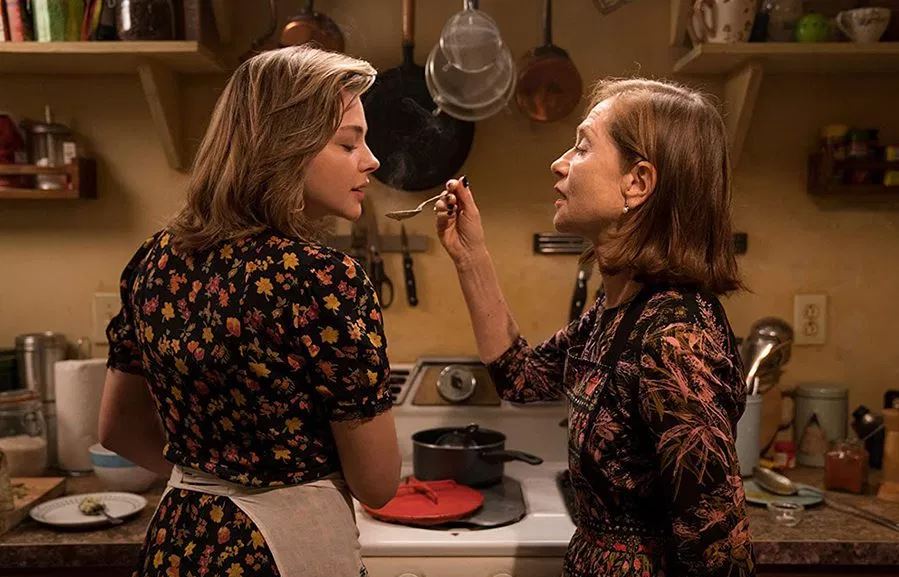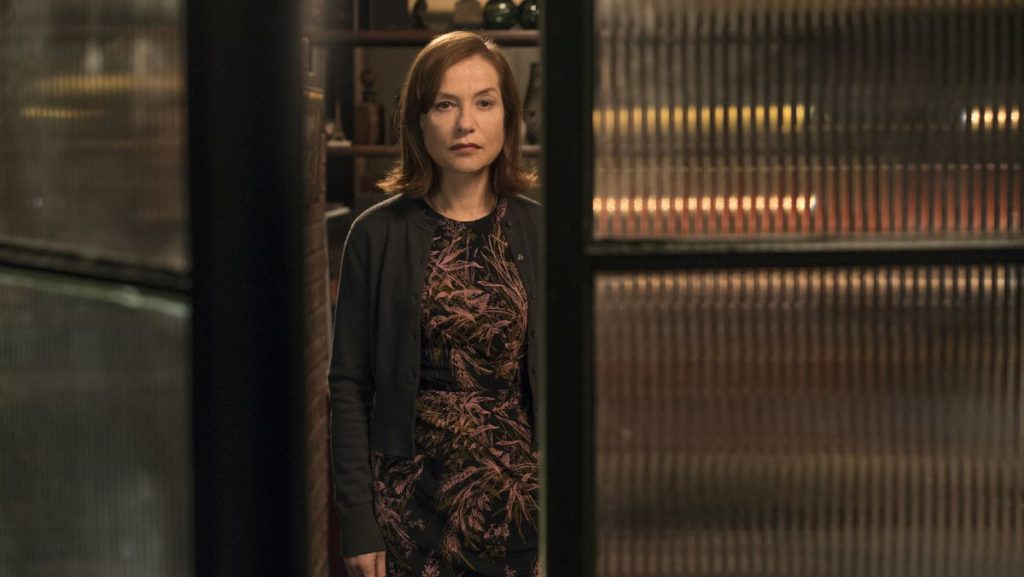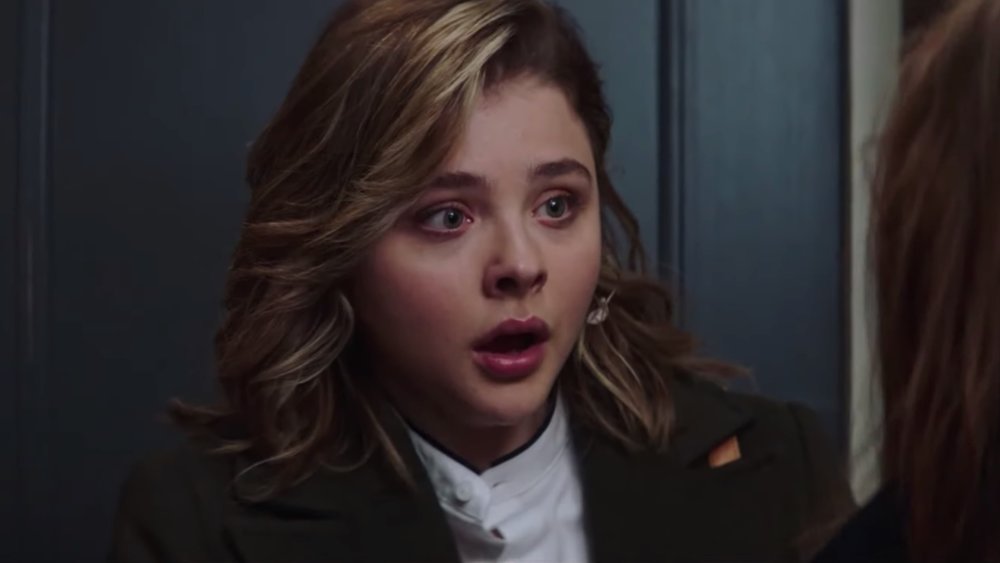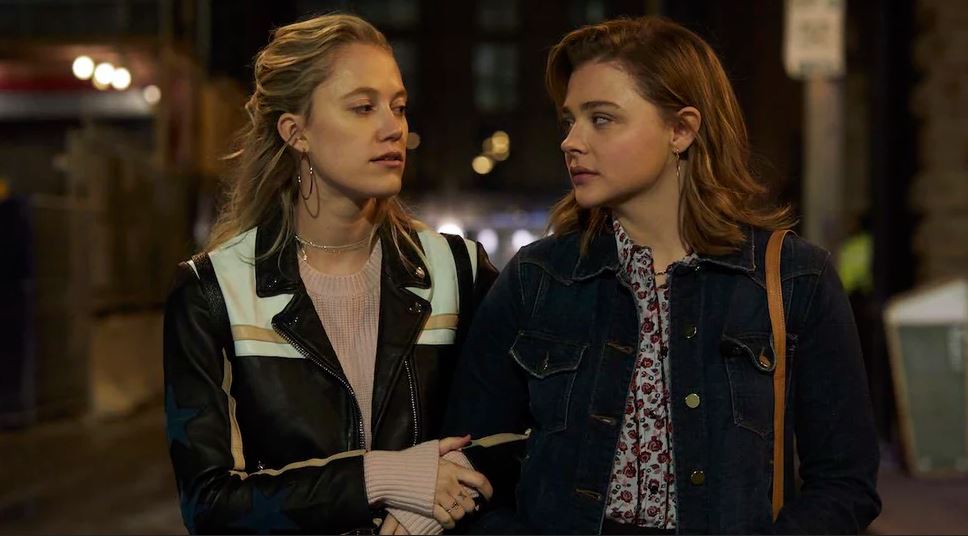
It would be unfair to accuse Greta of jumping the rails, because it’s never on the rails in the first place. Deeply silly and persistently entertaining, this campy thriller would be laughable if it were remotely interested in being taken seriously. Thankfully, the director Neil Jordan, working from a script he wrote with Ray Wright, seems to have recognized the material’s inherent kitsch; he abandons logic and nuance in favor of cheesy suspense. He wants to give you goose bumps, not dig under your skin.
It’s a smart decision, if not as smart as casting Isabelle Huppert in the title role. One of the most intuitive actors in the world, Huppert often flashes a steely sternness, a rigidity that she wields to mask her characters’ inner pain and longing. The logline of Greta—elderly immigrant widow befriends bereaved Manhattan twentysomething—feints at a sober exploration of maternal isolation and compassion, and if you enter the film with no knowledge of its premise, you might expect the title character to be another of Huppert’s keenly intelligent, emotionally fraught women. But while she may be quick-witted and determined, Greta is not especially humane. In fact, she isn’t even human, because she’s actually a vampire.
OK, not technically, but she’s awfully close. Jordan, whose spectacularly uneven career includes several movies about immortal bloodsuckers—including Interview with the Vampire and his most recent feature, the underrated Byzantium—envisions Greta as a vaguely demonic presence, and Huppert obliges, turning her frail spinster into a figure of chilling wickedness. If any subtlety existed during this film’s conception, it’s now long gone, possibly because Greta baked it into a soufflé before swallowing it whole.

To counterbalance Huppert’s acute ferocity, Jordan has cast Chloë Grace Moretz, the 22-year-old actress who, if it weren’t for Anya Taylor-Joy, might be monopolizing the imperiled-girl role in independent cinema. (Between Suspiria and The Miseducation of Cameron Post, Moretz had an impressive 2018, even as her characters suffered greatly.) Moretz obviously lacks Huppert’s dexterity, but she has an innately naïve and sympathetic bearing, which makes her a strong choice to play Frances, an aimless waitress who lives in a luxurious Tribeca loft with her roommate, Erica (Maika Monroe, from It Follows and The Guest). Not too long ago, Frances lost her mother, which may explain why, when she discovers a green handbag left on the subway containing Greta’s driver’s license, she chooses to return it to its owner. When she knocks, a smiling wolf opens the door.
What transpires is not remotely surprising, unless perhaps you’ve never seen a single movie by Alfred Hitchcock or Brian De Palma. Greta and Frances quickly strike up a warm relationship that resembles a mother-daughter bond; Frances helps Greta adopt a dog (a pitiful beast named Morton) and teaches her how to use a cell phone, while Greta educates Frances on the finer points of cooking and piano-playing. They get along swimmingly—when Greta worries that Frances will grow tired of her, Frances reassures her, “I’m like chewing gum, I tend to stick around”—until one evening when Frances, rather conveniently, stumbles upon a cabinet that contains a dozen replicas of that same jade handbag, each with a sticky note that bears a female name.

Girl, get out of there! And she does; to the film’s credit, Frances behaves in ways that, if not entirely sensible, don’t correspond to typical horror-victim tropes. Upon discovering that Greta is a serial stalker, Frances feigns an excuse and hightails it out the door. Later, when Greta shows up outside Frances’ restaurant and spends hours staring daggers through the window, Frances calls the police. And when she voluntarily descends into a spooky basement in the third act, it isn’t out of foolish curiosity; it’s because she’s frantically looking for a way out.
Greta’s intensifying obsession with Frances, and Frances’ corresponding panic, would seem to brand Greta as a horror movie, but it’s more silly than scary. (For all its blood and death, its most disturbing moment takes place when Greta spits a hunk of chewing gum into Frances’ hair.) There’s a layer of absurdity coating the film, from Greta’s sudden mastery of her cell-phone camera to Javier Navarrete’s hilariously overwrought score to the late emergence of a rumpled private eye (played by Stephen Rea in his obligatory Jordan-sanctioned cameo) who promptly ventures into the lioness’ den. This arch playfulness makes the movie fun, but it also puts some distance between you and the screen, preventing you from feeling the weight of Greta’s hysteria or Frances’ trauma.

Not that Greta is lacking in talent or craft. The cinematographer is Seamus McGarvey, one of the best in the business (his work on Bad Times at the El Royale went shamefully unnoticed), and he toys with light and darkness beautifully, such that the same location can look inviting or sinister depending on the time of day. He also provides a handful of striking images; a close-up of Frances and Erica seated in a movie theater, each wearing 3-D glasses, is ravishingly intimate, while a fluid dolly shot in a train station could have been lifted straight out of Femme Fatale. And Jordan is hardly asleep at the wheel, coyly highlighting mundane objects—a metronome, a rolling pin—that take on significance in the larger mystery. At one point, he delivers a clever double fake-out that initially seems like a cheat but quickly reveals its brilliance.
The one thing that Greta does lack—well, besides plausibility or restraint or good taste—is interesting characters. Greta herself is too cartoonish to possess any genuine motivations for her misdeeds, while Frances’ dead mom is a lazy substitute for actual detail, designed purely to make you sympathize with her. (Moretz’s natural vulnerability makes the backstory doubly unnecessary.) The curious exception is the high-heeled Erica, who initially scans as petty and selfish—lampshading this, the screenplay has her declare, “I’m just a superficial bitch”—but whom Monroe turns into a figure of tenderness and decency.
But really, who cares about cookie-cutter characters when an actual cookie-cutter is wielded to chop off somebody’s finger? Greta may be ridiculous, but it’s never boring, all the way to its deliciously chintzy final shot. This slick, ludicrous movie is hardly worth obsessing over, but you’ll still want to stick around.
Grade: B-
Jeremy Beck is the editor-in-chief of MovieManifesto. He watches more movies and television than he probably should.
